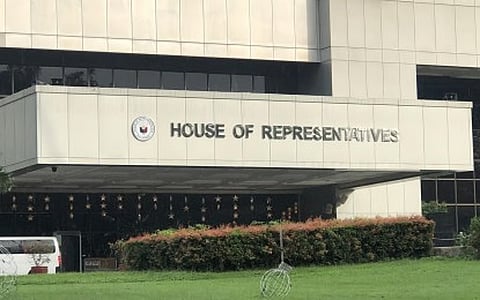
- NEWS
- the EDIT
- COMMENTARY
- BUSINESS
- LIFE
- SHOW
- ACTION
- GLOBAL GOALS
- SNAPS
- DYARYO TIRADA
- MORE

The House of Representatives is eyeing to increase from P150 to P200 the long-stalled bill for an across-the-board daily wage hike, Speaker Martin Romualdez announced Wednesday.
The amount set was the consensus agreed upon during a closed-door meeting late Tuesday by House leaders with major labor groups, including the Trade Union Congress of the Philippines (TUCP), Associated Labor Unions and Federation of Free Workers, among others.
“The emerging consensus here in the House of Representatives, pending ongoing public consultation, is if we can increase the minimum wage by P200 per day,” Romualdez said.
The TUCP has long petitioned the House to pass the legislated across-the-board wage increase of P150 in the daily pay of workers in the private sectors nationwide.
The proposal, under House Bill 7871, filed by Deputy Speaker and TUCP Rep. Raymond Democrito Mendoza, has been pending at the committee level since May 2023.
The Makabayan bloc, meanwhile, proposes to increase to P750 the daily wage for all employees in the private sector under their House Bill 7568, which has also remained pending at the same committee since March 2023.
The current minimum wage for private workers in the National Capital Region is set to P645 following the last P35 increase approved in July last year.
If the proposed P200 daily minimum wage hike is approved, the new daily minimum wage will increase to P845.
According to Romualdez, the House will expedite the passage of the P200 daily minimum wage proposal, but they will also ensure that businesses, particularly micro, small and medium enterprises (MSMEs) will not bear the brunt of it. He disclosed that they intend to include wage subsidies and exemptions for this sector.
“Our MSMEs are the backbone of our economy, and they must be protected even as we address the needs of our workers. Through wage subsidies and other mechanisms, we aim to ensure that no one is left behind,” he averred.
The last legislated wage increase was enacted more than three decades ago under the Wage Rationalization Act of 1989, a matter that the House chief stressed, successfully raised wages without causing massive inflation or widespread business closures.
“If we were able to do this in the past, there is no reason why we cannot do it now, especially with careful planning and collaboration with all sectors. We will not only increase the salary, we will also ensure that it will help our economy,” Romualdez pointed out.
The Senate in February last year had already passed a P100 legislated wage increase for private employees. Nearly two years later, the House has yet to pass the counterpart measure.
Earlier, seasoned economists — Albay Rep. Joey Salceda and Marikina Rep. Stella Quimbo — argued that the proposal of a wage increase will not be felt in the long run since prices of goods and services are likely to go up subsequently after the wage hike.
The Employers Confederation of the Philippines (ECOP), the country’s biggest trade organization, has religiously rejected clamor for the wage hike, citing its disadvantage for MSMEs, which he claimed, will be severely affected by the increase but won’t get nothing in return.
Further, the ECOP asserted the proposed wage hike would also hit farmers, fisherfolk, market vendors, and some in the informal sector, which accounts for 84 percent of the labor force.
Some employer groups have also opposed the calls for legislated wage hikes for fear that it may lay off workers or force small businesses to shut down.
